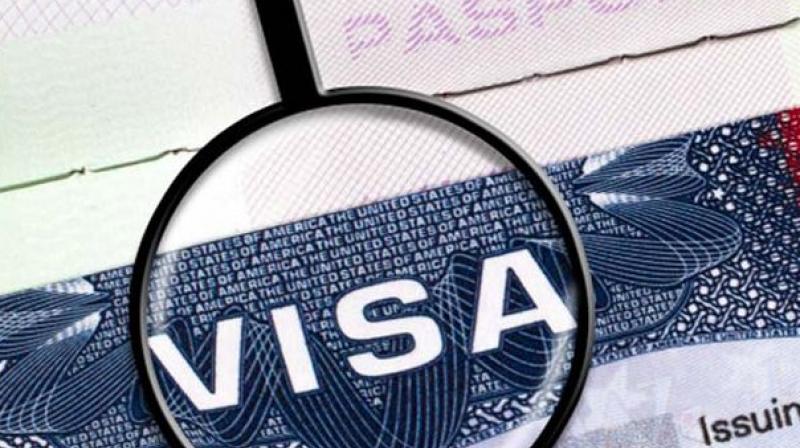US makes H1-B visa approval ‘very tough’
25 February, 2018

Indian IT firms, which are among the major beneficiaries of H-1B visas, has a significant number of its staff deployed at third-party worksites.
Washington: The Trump administration has announced a new policy that makes very tough the procedure of issuing H-1B visas to those to be employed at one or more third-party worksites, a move that will hugely impact Indian IT companies and their employees.
Under the new policy, a company will have to go an extra mile to prove that its H-1B employee at a third-party worksite has specific and non-qualifying speculative assignments in speciality occupation.
The H-1B programme offers temporary US visas that allow companies to hire highly skilled foreign professionals wo-rking in areas with shortages of qualified Amer-ican workers.
Indian IT firms, which are among the major beneficiaries of H-1B visas, has a significant number of its staff deployed at third-party worksites. A significant number of American banking, travel and commercial services depend on on-site IT workers from India to get their job done.
The new move announced on Thursday through a seven-page policy empowers the US Citizenship and Immig-ration Services (USCIS) to issue H-1B visas to an employee only for the period for which he/she has work at a third-party worksite.
The latest policy memorandum is a part of President Donald Tru-mp’s ‘Buy American and Hire American Executive Order’ and the directive to protect the interests of US workers, the USCIS said.
As such the issuing of H-1B visas could be of less than three years. This will reverse the tradition of issuing the H-1B visas for three years at a time. Effective immediately, the new guidance comes weeks ahead of the beginning of the H-1B visas filing season, which is expected to be April 2, for the fiscal year 2019 beginning October 1, 2018. The guidance says in order for an H-1B petition involving a third-party worksite to be approved, the petitioner must show by a preponderance of evidence that the beneficiary will be employed in a speciality occupation and the employer will maintain an employer-employee relationship with the beneficiary for the duration of the requested validity period.
When H-1B beneficiaries are placed at third-party worksites, the companies must demonstrate that they have specific and non-speculative qualifying assignments in a speciality occupation for that beneficiary for the entire time requested on the petition.
While an H-1B petition may be approved for up to three years, the USCIS will, in its discretion, generally limit the approval period to the length of time demonstrated that the beneficiary will be placed in non-speculative work and during which the petitioner will maintain the requisite employer-employee relationship, an official statement said.
Extensions of H-1B visas have become even tougher, in particular if the employee has been on a bench for any part of their previous duration.
TAG(s):
